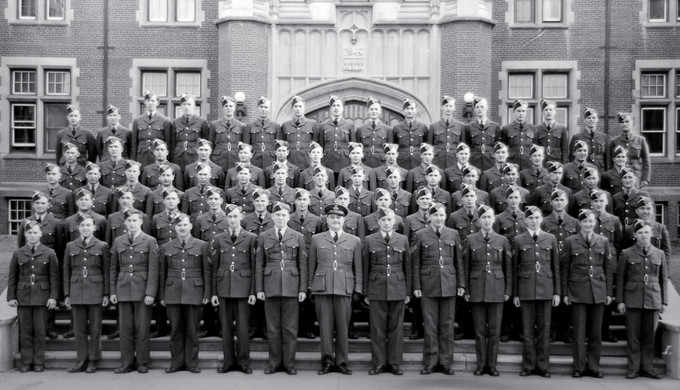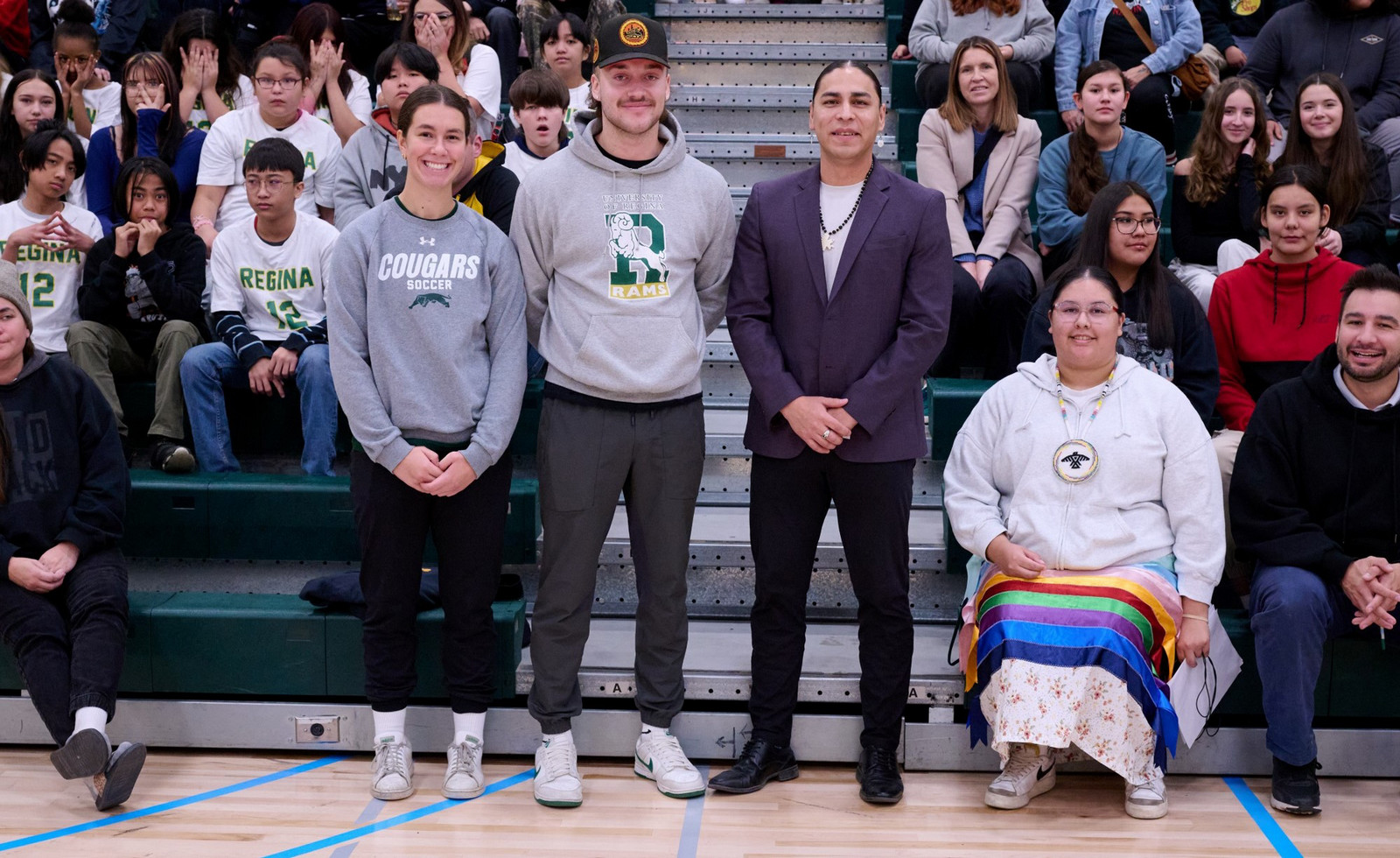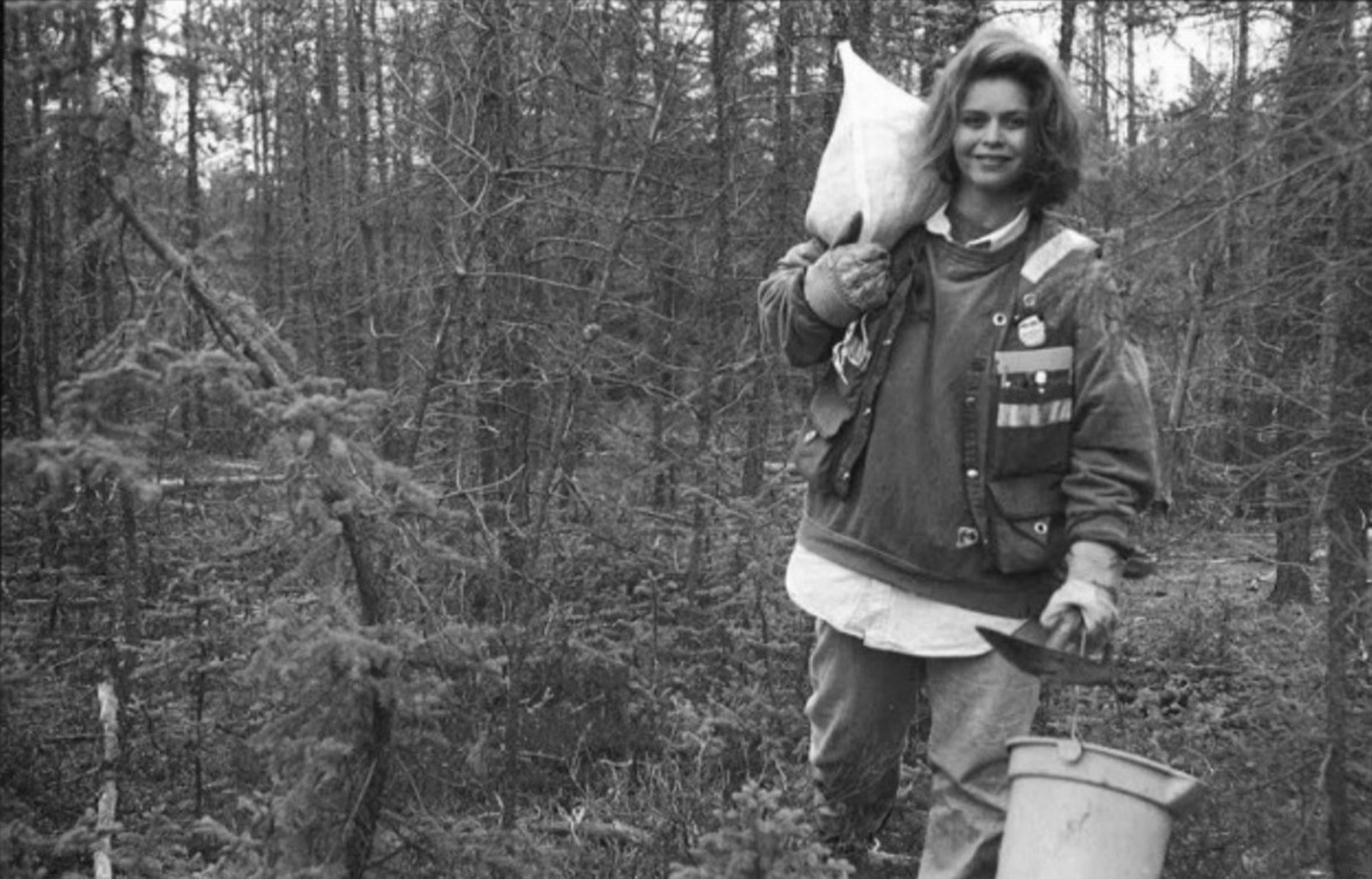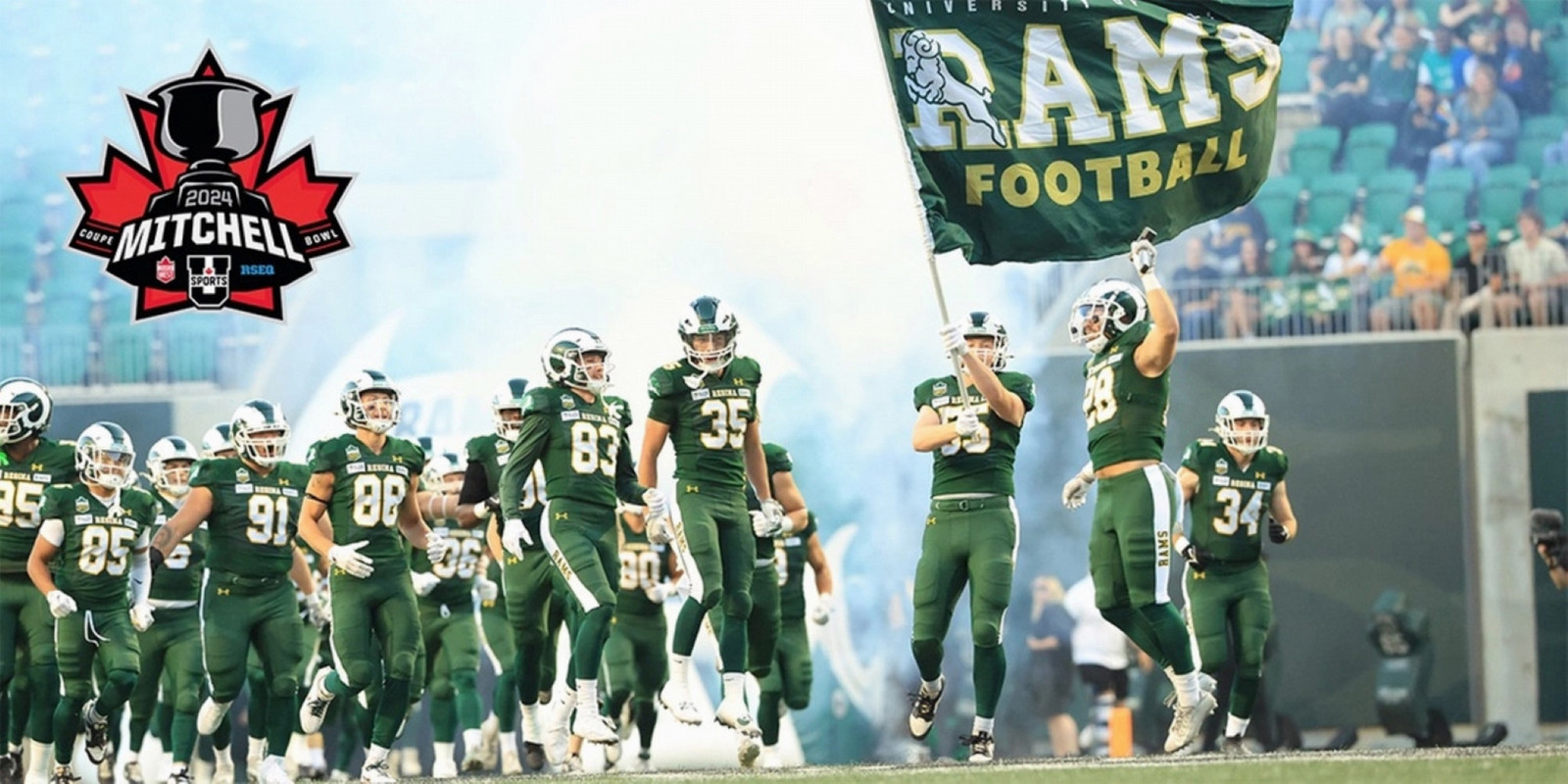The University of Regina is lowering the flags to half mast on November 8 to honour Indigenous Veterans Day, which recognizes the long and proud tradition of First Nations, Métis, and Inuit service to our country, and again on November 11 to commemorate Remembrance Day. The U of R sign at the main entrance will also be lit in red over the long weekend. On Tuesday, November 12, the University will premiere the documentary Operation Calvados followed by a panel discussion in tribute to the Regina Rifle Regiment’s role in World War II.
Eighty years ago, on June 6, 1944, the largest seaborne invasion in history – D-Day – started as Allied forces landed at Normandy to begin the liberation of France and Western Europe during World War II.
We must never forget the ultimate sacrifice more than 11,000 people from Saskatchewan have made during war, in military training, and in peacetime operations from the First World War to the present. — Dr. Jeff Keshen, U of R President and Vice-Chancellor
Headquartered in Regina, the Regina Rifle Regiment was comprised of young men from communities and First Nations across Saskatchewan, including students from Regina College (now the U of R). The regiment was the first to make landfall on June 6 and made further progress inland than any other regiment that day. The Regina Rifles reached Bretteville-l'Orgueilleuse, a town located near Caen, France, around noon on June 7, 1944. The following day, the Germans attacked with fighting continuing throughout the night. With help from the Royal Canadian Artillery, the regiment held its positions, and the Germans pulled back the morning of June 9. The regiment continued to fight in north-west Europe until the end of the war on August 15, 1945.
During World War II, 458 members of the regiment were killed, including 102 on D-Day. More than 14,000 Canadian soldiers landed or parachuted into France on D-Day. Through the whole Normandy campaign, more than 5,000 Canadians died, 381 of which were killed on D-Day.
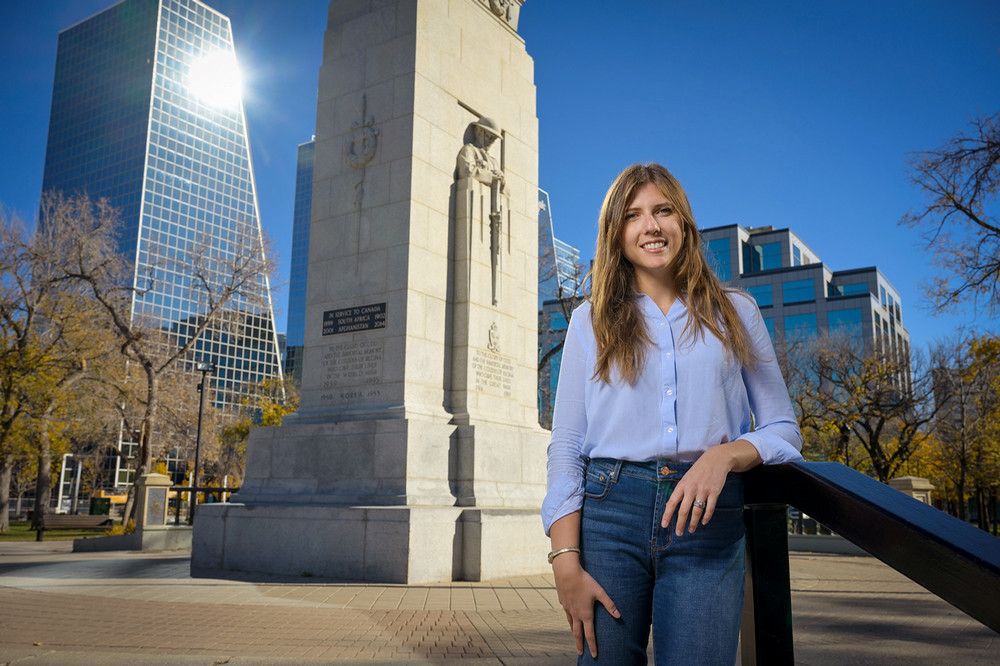
To commemorate the sacrifices of the soldiers from Saskatchewan, the Royal Regina Rifles Trust raised funds to commission and place a statue in Normandy on June 5, 2024, as well as take current-serving and retired members of the regiment overseas to participate in a Tour of Honour as part of the D-Day 80. The statue, The Regina Rifleman, an eight-foot bronze work, was created by world-renowned Canadian sculptor Don Begg, AOE at Studio West Bronze Foundry & Art Gallery.
The documentary, Operation Calvados, named for the potent apple cider that the Regina Rifle Regiment found in abundance in Normandy, honours those who served with the Regina Rifle Regiment by examining the creation, importance, and final installation of the bronze Regina Rifleman statue in the Bretteville-l'Orgueilleuse Canadian Memorial on June 5, 2024. Through interviews, archival footage, and photography, the documentary explores the historical and emotional significance of the Regina Rifles’ contributions during D-Day and the pivotal role they played in the victory that ended World War II.
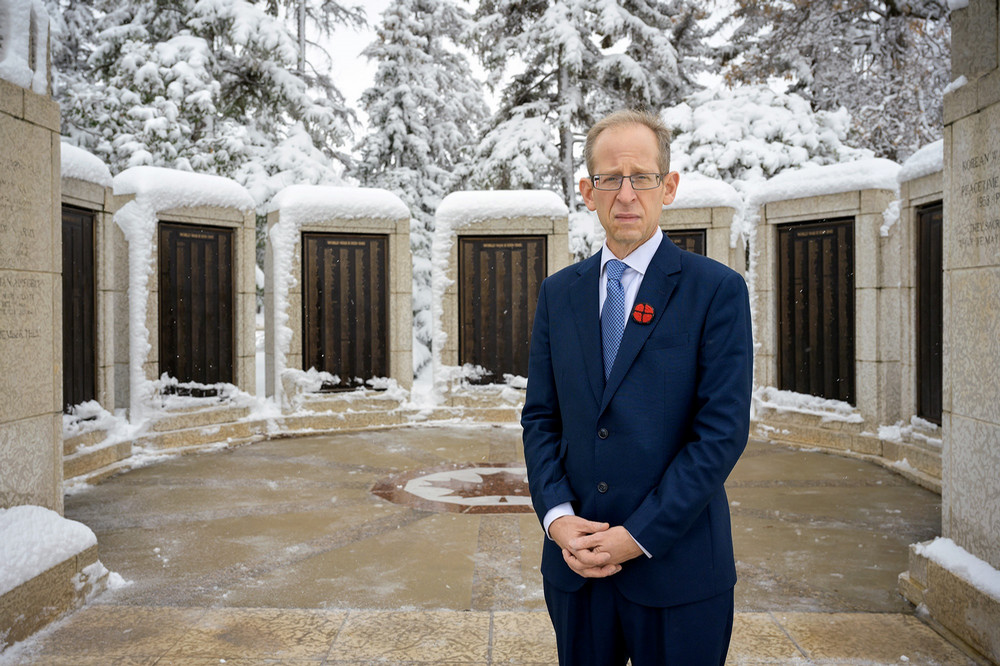
Following the premiere, there will be a panel discussion on the D-Day Landings, the Battle of Normandy, and the Royal Regina Rifles' part in the events of 1944 – 45. The members of the panel include: Brigadier General (Retired) Cliff Walker SOM, CD; Brigadier General (Retired) David Patterson MSM, CD; Master Warrant Officer Robert Brown, CD, BA; Master Warrant Officer Lizette LeBlanc, CD; and, Mr. Antoine Piard.
U of R alumni and historian Kelsey Lonie BA’15, MA’24 played a key role in the Operation Calvados project and has been collaborating with the University to ensure that young people from Saskatchewan can learn about and honour the Regina Rifles’ contributions in both World Wars. Additionally, a history student from the U of R will undertake an Honours project on the Regina Rifles, exploring the significance of the Normandy monument for future generations.
Read more about Kelsey Loney and the Royal Regina Rifles Senate and Trust
“The University of Regina is proud to have supported this important project,” said Jeff Keshen, President and Vice-Chancellor. “We must never forget the ultimate sacrifice more than 11,000 people from Saskatchewan have made during war, in military training, and in peacetime operations from the First World War to the present. The impact those selfless people have had on our country and world cannot be overstated or forgotten.
It is especially fitting for our University to honour those sacrifices this year. In addition to 2024 being the 80th anniversary of the D-Day landings, it also marks our 50th anniversary as an independent degree granting institution. We developed out of the former Regina College, and to this day, in the College Building there are plaques inside the main entrance with the names of students and staff who served.”
Banner Photo: Air Force trainees of No. 3 Air Observer School at Regina College, now the College Avenue campus of the University of Regina, circa 1942. Photo courtesy of Stephen King.
About the University of Regina
2024 marks our 50th anniversary as an independent University (although our roots as Regina College date back more than a century!). As we celebrate our past, we work towards a future that is as limitless as the prairie horizon. We support the health and well-being of our 17,200 students and provide them with hands-on learning opportunities to develop career-ready graduates – more than 92,000 alumni enrich communities in Saskatchewan and around the globe. Our research enterprise has grown to 21 research centres and 9 Canada Research Chairs. Our campuses are on Treaties 4 and 6 - the territories of the nêhiyawak, Anihšināpēk, Dakota, Lakota, and Nakoda peoples, and the homeland of the Michif/Métis nation. We seek to grow our relationships with Indigenous communities to build a more inclusive future.
Let’s go far, together.
